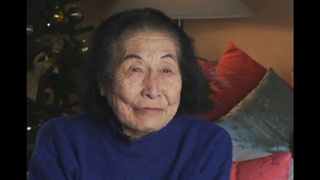Interviews
School life in Japan (Japanese)
(Japanese) Those times in elementary school, around First or Second grade, well, of course I’m behind [in the curriculum] compared to the other kids, so yes, I was ridiculed to a certain degree. They’d say, “Hey, America(n)!” and such to make fun of me. They wouldn’t let me be a part of their group… So yeah, there were things like that. But in Third grade, there happened to be this Sumo tournament at school, and for some reason I ended up being the last man standing and actually won the title. After that, my stock immediately rose (laughs). So then they let me in to their groups, and we’d play baseball together, volleyball together, and more friends were made in more groups… I had the most fun after that. Yes. I think it was around Third grade.
Date: June 17, 2008
Location: California, US
Interviewer: Yoko Nishimura
Contributed by: Watase Media Arts Center, Japanese American National Museum














